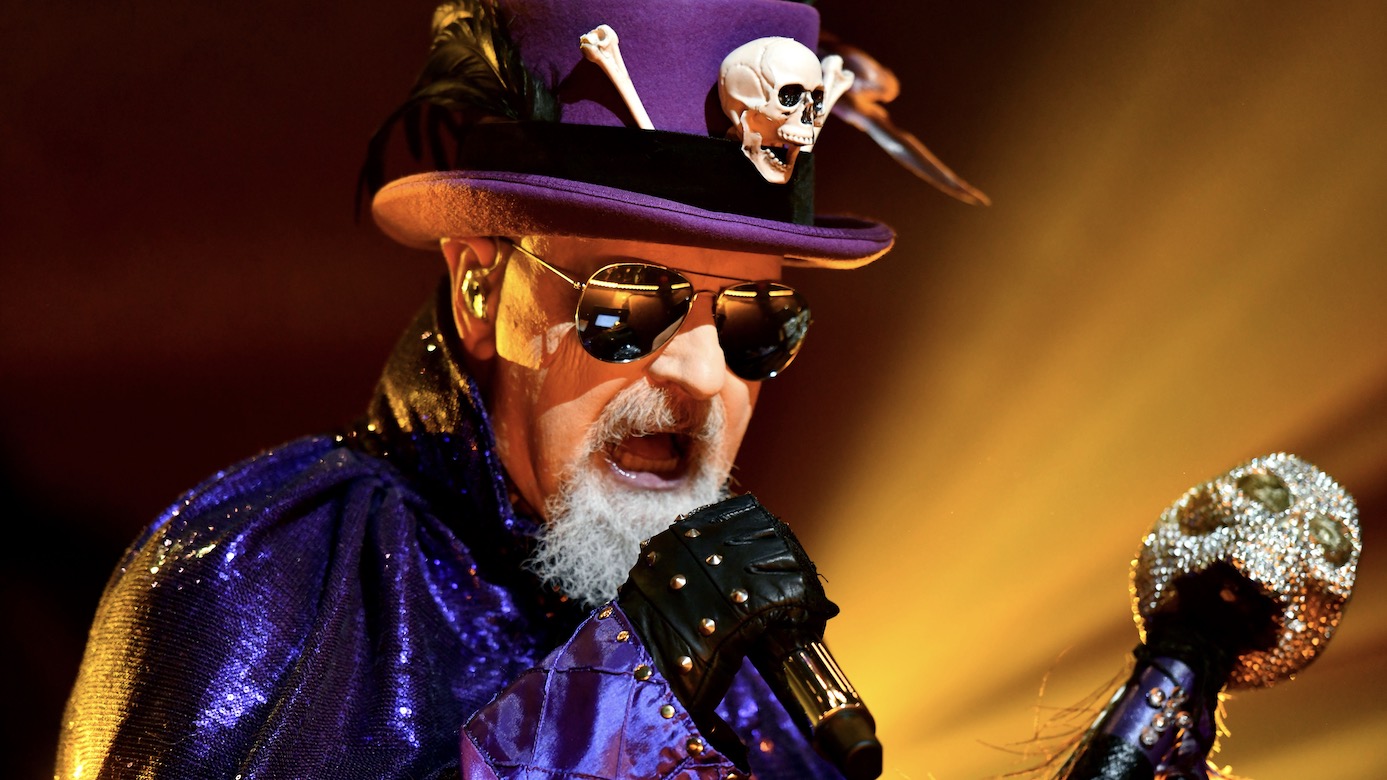With his upcoming autobiography, Confess, due for publication on September 29, Judas Priest frontman Rob Halford will be revealing himself to the world as never before. One of metal’s most intriguing and iconic figures, Halford has previously admitted that some readers will be “shocked” by the book, the writing of which he has described as “exciting, fun, disturbing, terrifying and cathartic.” Publishers Hachette are billing the autobiography as “a compelling, heartfelt and honest look at the struggles Rob has faced with addiction and his sexuality as well as exploring his music and his many brushes with controversy.”
Halford recently spoke to Louder’s Paul Brannigan about his memories of coming out as a gay man in 1998. Asked whether the timing of his declaration, which took place after he’d left Judas Priest to launch a solo career, was emboldened by the sense of liberation he felt as a solo artist, the singer admits that his statement might have had “very different implications” if made during his initial stint fronting the Brummie metal gods.
“I think that for every gay guy or gay girl there’s a period where you’re trying to work out who you are, and it can be quite a difficult thing to do, because there’s so much going on in your head,” Halford says. “It can be torture at times, while you’re coming to terms with everything, and realising that there’s real importance and significance to accepting and embracing who you are. And when I did come out, it kinda disassembled the myth about the metal community not being open and accepting and having no barriers. When I think about the metal community then and indeed now, people were like, ‘We don’t really care, we’re all just here for metal.’ But it was a different world at the start, not just for me, but for gay guys and girls everywhere, and you kinda had to find a way to almost live a double life.”
“The fact that I made the announcement at the time that I did, meant that when I came back to Priest, everyone knew I was gay, and there was no impact upon the band, whereas had I done that in 1976, it could have had very different implications for the band,” he admits. “The thing about being in the closet is that you’re protecting other people all the time, and there’s something to be said for that, in terms of that you have to have empathy for people for putting them through that experience, but it’s a bad thing to do to yourself, for your head and your heart. It comes at a personal cost.”
Rob Halford’s autobiography, Confess, will be published on September 29 via Hachette.

